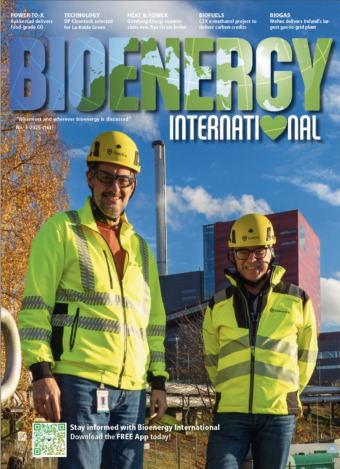Following the publication of the European Green Deal on December 11, 2019, by the European Commission, the partners of the DecarbHeat Initiative stress that the decarbonisation of the heating sector will be a success factor for the European Green Deal and the more ambitious carbon dioxide (CO2) emission reduction target put forward by the European Commission President.

A joint initiative by the European Heat Pump Association (EHPA), Bioenergy Europe, Euroheat & Power, European Partnership for Energy and the Environment (EPEE), Solar Heat Europe/ESTIF, the European Geothermal Energy Council (EGEC) and the European Association for the Promotion of Cogeneration (COGEN Europe), Decarbheat brings together the major players of the heating and cooling industry and other major stakeholders in order to join forces behind one clear vision: a 100 percent carbon emission-free, efficient European heating & cooling sector by 2050.
The DecarbHeat Initiative assists policymakers to define transparent and sustainable measures to unleash the potential of the heating and cooling sectors towards the renewable energy and energy efficiency targets.
Following the recent publication of the European Green Deal by the European Commission, the partners of the DecarbHeat Initiative stress that the decarbonisation of the heating sector will be a success factor for the European Green Deal and the more ambitious carbon dioxide (CO2) emission reduction target put forward by the European Commission President.
Sustainable heating and cooling solutions are readily available today but not yet sufficiently deployed. Through an integrated approach, we are convinced that this sector can contribute greatly to reducing greenhouse gas emission, by bringing to market secure, affordable and climate-friendly energy alternatives, based on efficient and renewable heating and cooling solutions, said Pedro Dias, current convenor of the DecarbHeat Initiative.
The Initiative urges policymakers to act by creating a more favourable legislative framework, encouraging deployment of sustainable solutions and in particular focusing on modernising existing systems.
The European legislation, and therefore the European Green Deal, need to define clear and sustainable measures to unleash the potential of the heating and cooling sector towards the renewable energy and energy efficiency targets by:
- Prioritising the implementation and enforcement of existing and recently agreed on legislation, including market surveillance
- Taking an integrated approach towards the energy systems planning, development and operations across all energy infrastructures. This approach will ensure higher flexibility, improved system efficiency, higher uptake of renewable energy across all energy carriers, and ultimately a cost-effective energy transition.
- Putting forward a smart and cost-effective combination of technologies and fuels. Energy efficiency and renewable energies should be maximised and the synergies between them should be optimised.
- Tapping into existing local resources and technologies and enable further innovation.
- Identifying investment needs in infrastructures and R&D including industrial process heat, building sector, innovative renewable technologies, hybrid systems, demand-side flexibility, energy management, and storage.
- Better exploiting the potential of thermal storage. Energy storage will be key in the future energy transition. The cost-effective potential of all types of renewable energy storage (be it in the form of heat, molecules or electricity) should be identified and unlocked. Thermal storage is proven to be cheap seasonal storage and is already deployed in markets, millions of people have already thermal storage in their home. This will prove key in a system including a high share of variable renewable energy.
- Prioritising effective national and local policies and actions, supported by comprehensive local planning, to trigger the investments needed.
- Ensuring affordability for all through affordable modernisation and quality.
- Incentivising the decarbonisation of heating and cooling by establishing a level playing field across regulatory, fiscal and other policy tools.
- Establishing a robust strategy towards the gradual phase-out of fossil fuels.
The decarbonisation of heating and cooling should be a political priority. Legislators must tap into the sector’s ability and potential, to help Member States delivering on the current climate and energy goals, and enabling the EU to become more ambitious under the future European Climate law. A stronger European industrial capacity in this sector will boost the creation of skilled jobs at the local level and support European competitiveness worldwide, Pedro Dias concluded.


